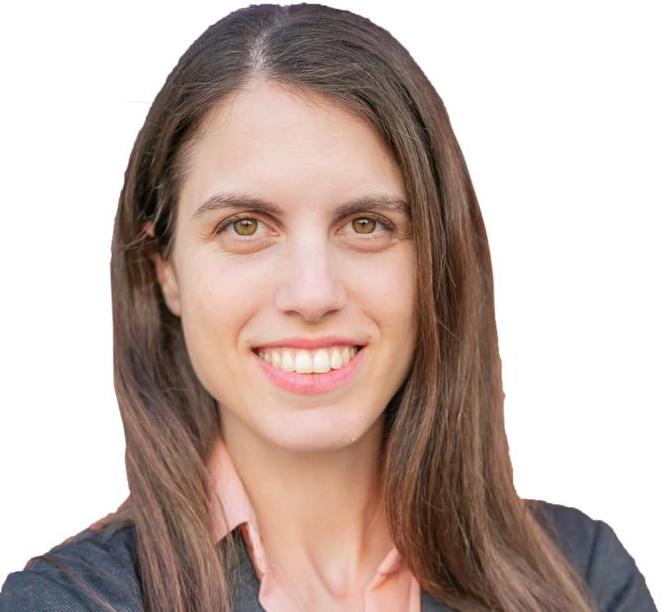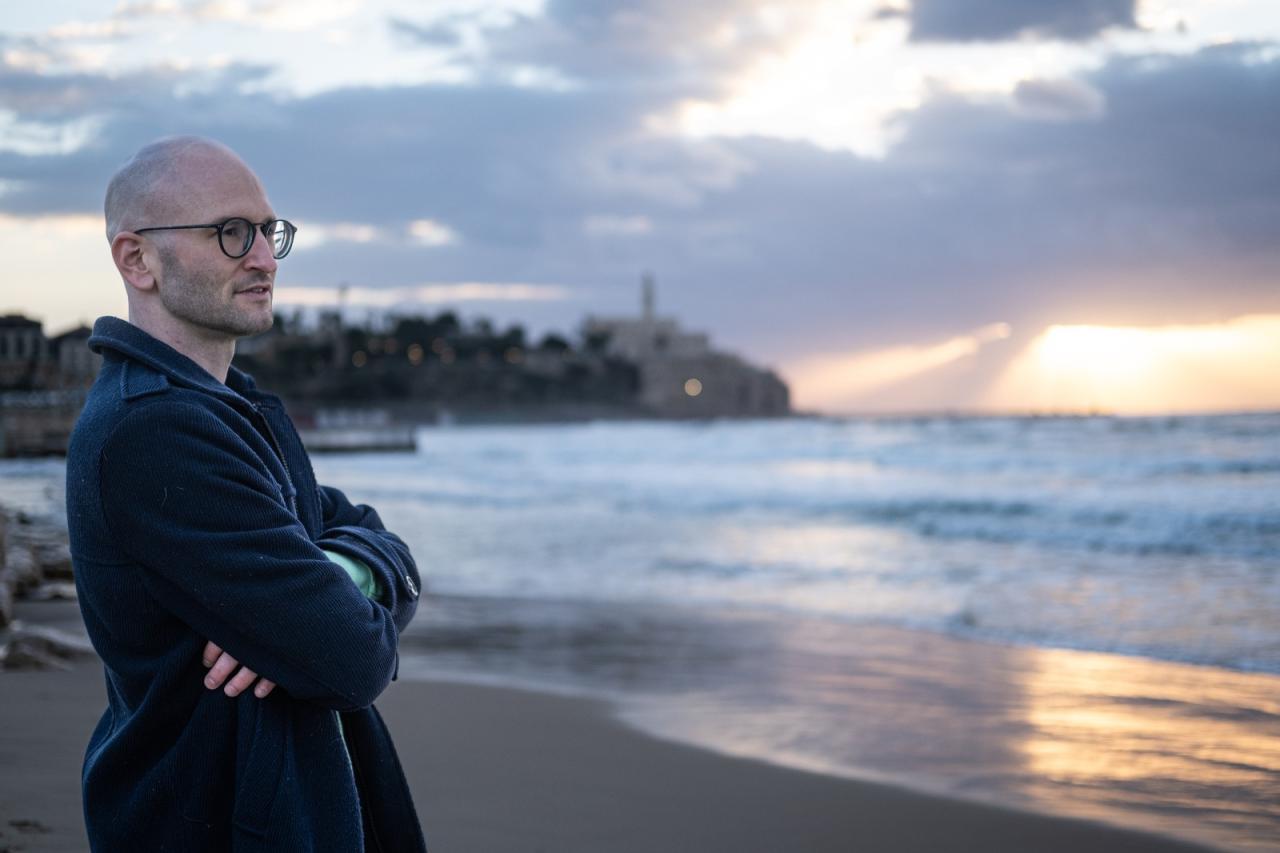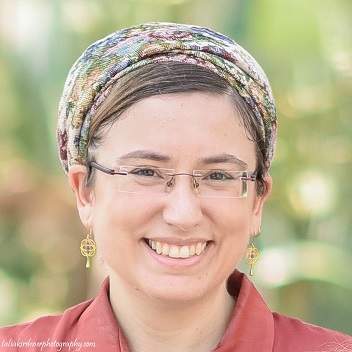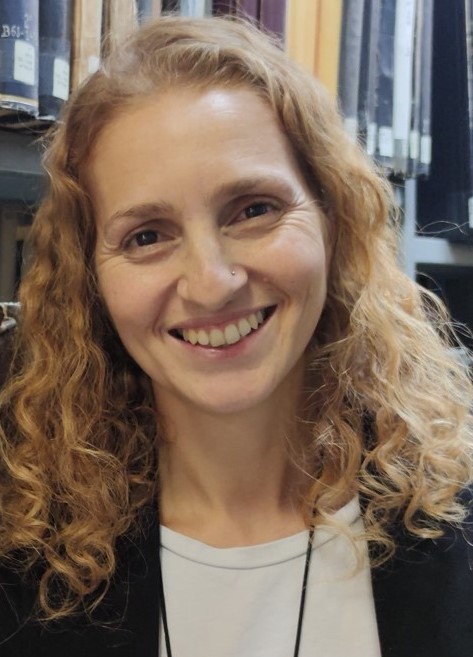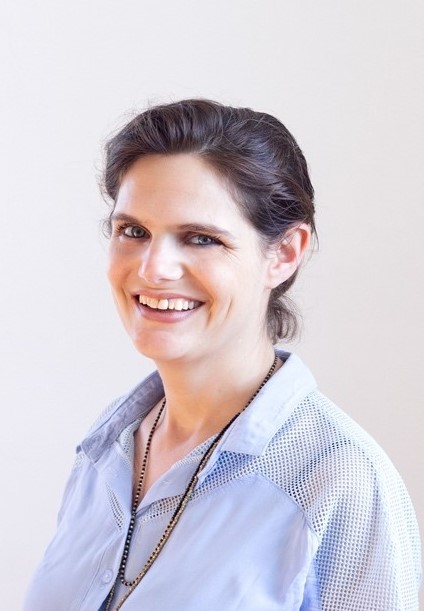Postdoctoral Fellowships
The Center offers postdoctoral fellowships whose work focuses, broadly defined, on studying consciousness according to Judaism. Fellows are invited to present their work in various forums of the Department of Jewish History and Contemporary Jewry.
Call for Applications: Postdoctoral Research Fellowship for 2024-2025
Read more about the Fellows
|
2023-2024 Dr. Maayan Armelin, Advisors: Dr. Uriel Gellman, Dr. Yechiel Weizman
Maayan Armelin earned her Doctorate from the Strassler Center for Holocaust Studies at Clark University and holds a Masters in Social Psychology from the University of Haifa. During her doctoral studies she was awarded several fellowships, among them from the Wiesenthal Institute for Holocaust Studies in Vienna, and the H. F. Guggenheim Foundation. In the academic year of 2024 Armelin is a post-doctoral fellow at the Marcell and Maria Roth Chair in the History and Culture of Polish Jewry and the Halpern Center for the Study of Consciousness According to Judaism, both situated at the Department of Jewish History and Contemporary Jewry, Bar-Ilan University. Armelin’s research project follows Eastern European Jewish communities who fell victim to the systematic “face to face” annihilation during the Holocaust. Focusing on community members’ postwar testimonies, she examines survivors’ descriptions of the murder process and of the interaction between victims and perpetrators. Those aid in understanding that first, brutal stage of mass murder and add to commemoration efforts of individuals and communities. Witness accounts also allow to examine important aspects in the victims’ self-perceptions, and how imminent death and perpetrators’ actions affected communal, group, and individual Jewish and social identities. Testimonies reveal that German perpetrators divided the Jewish communities into separate groups, and that members of Jewish Councils and the Jewish Police, who were forced to serve as functionaries in the annihilation process were also provided easier access to resource, food, and better accommodations. Integrating historical, psychological, and sociological methodologies, the project analyzes how these divisions affected the perceptions of entire communities and of members within them. Did a functional division entailed a social and perceptual division by which victims saw themselves separated by status rather than members of the community? Were functionaries “blamed” for their actions and accused of being less Jewish or less human, and how did immediate fear of persecution and death shifted Jewish perceptions and the communities’ organization of self-aid, resistance, and the commemorating of the perished and of the chronology of the events. |
|
2022-2023 Dr. Binyamin Hunyadi, Advisor: Dr. Uriel Gellman
At the Halpern Center Binyamin worked on the topic “Reshaping Jewish Self-Perception in the Jewish Press, 1868–1917”. More specifically he focused on one of the chapters that played a decisive role in the identity formation of Jews in Hungary, i.e. the Tiszaeszlár blood libel process of 1882–1883 and its reverberations in Jewish public discourse in Hungary and beyond. The Rezeptionsgeschichte of the blood libel process in the Jewish public sphere (especially in the Hebrew and Yiddish press) was significantly different from the treatment of the subject in non-Jewish outlets. His research showed how the details of the historical event itself were overshadowed and supplanted by folkloristic narratives used by Hebrew and Yiddish writers to highlight the ideological aspects of the proceedings. It was in this folklorized understanding of the events that the Jewish (hi)story of Tiszaeszlár was linked to already prevalent Jewish narrative traditions of martyrdom and persecution. Finally, the research argued that these folk narratives around Tiszaeszlár created one of the foundational myths of a distinctly Hungarian Jewish identity. Dr. Chana Shacham-Rosby, Advisor: Debra Kaplan
My research deals with the social history of Jewish communities through the examination of their literary, artistic, and material representations. I am particularly interested in the way ideas and concepts were expressed in texts, illustrations, and objects, that were all part of religious ceremonies. That is, I examine how the self-consciousness of a Jewish community is expressed in its cultural and material creations, and how the liturgy and the objects that were part of rituals strengthened the self-consciousness of the community members. I dedicated my doctoral thesis to the performances and characteristics of Elijah the prophet in Jewish Ashkenazi culture in the Middle Ages. In this study I focused on the performances of Elijah the prophet in eschatological concepts of the communities, in circumcision ceremonies, and in Passover order. As part of a post-doctorate at the Center for the Study of Religious Conversions and Interreligious Relations at Ben Gurion University and a post-doctorate at the Center for Jewish Studies at Harvard University, I developed a new research project on the material culture of the ally's chair (Godfather) and the Elijah chair in circumcision ceremonies. During my year at the Halpern Center for the Study of Consciousness according to Judaism under the guidance of Prof. Debra Kaplan, I focused on groups of benefactors in early modern Italian communities who helped and supported poor families when they had children. In return for their assistance, the members were honored to serve as godparents in the baby's circumcision, and for this purpose special and fancy chairs were made, some of which have been preserved. From the physical findings and the descriptions of how they were used and treated, I followed processes and developments in relation to the roles of the godfather and the circumcizer in the consciousness of the community and the self-perception of the officials. |
|
2021-2022 Dr. Sivan Gottlieb, Advisor: Prof. David Malkiel
My main interests include illuminated Hebrew manuscripts from the late Middle Ages and their connections to non- Jewish cultures. My research focuses on the visual language, mostly in the form of diagrams, involved in the production of scientific and philosophical manuscripts. My aim is to contribute to the current understanding of the transfer and sharing of knowledge between different cultures; the collaboration and integration between Jews, Christians, and Muslims; and the adjustments that Jews made to both the texts and the images. In September 2021, I received my PhD in the Department of Art History at the Hebrew University of Jerusalem, Israel. My dissertation topic was ‘The Art of Medicine: Illuminated Hebrew Medical Manuscripts from the Late Middle Ages’ under the guidance of Prof. Sarit Shalev-Eyni.
Dr. Yael Levi, Advisor: Prof. Kimmy Caplan
Yael Levi completed her Ph. D. in Jewish History at the Hebrew University of Jerusalem, and her MA degree in Yiddish literature at Tel Aviv University. Her dissertation focused on the emergence of the Hebrew and Yiddish press in the United States, 1870--1900, from a cultural, political, and legal perspective. Her current depicts the phenomenon of suicide among East European Jewish immigrants in the United States in the turn of the twentieth century. Based on archival evidence, American Yiddish press, and rabbinic literature, the project scrutinizes the meanings and implications of Jewish self-violence on the self-perception of immigrant and native-born Jews in the United States during the era of mass migration. |



